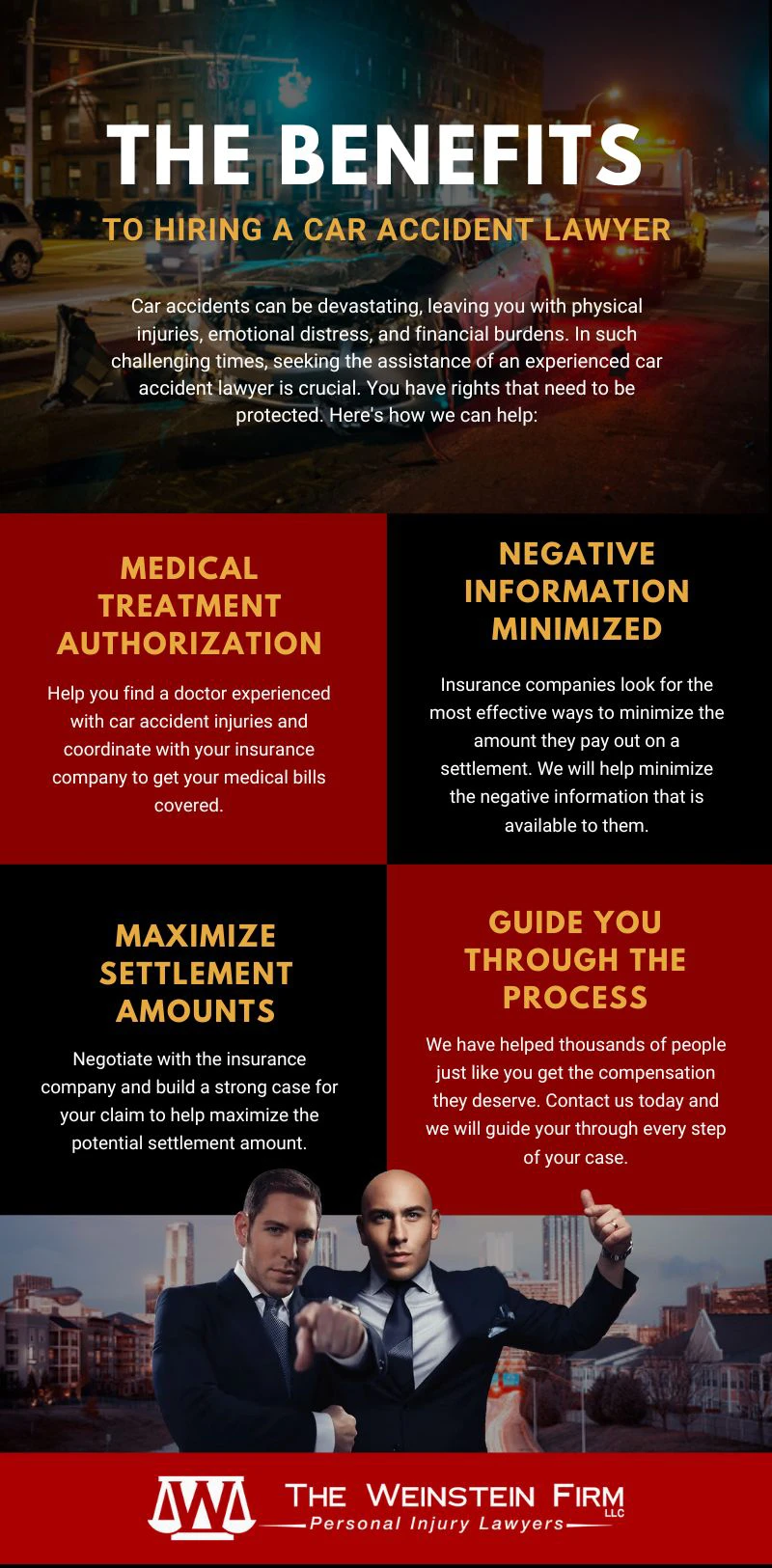Car insurance typically does not cover emotional distress resulting from a car accident.
Understanding Emotional Distress In Car Accidents
Understanding emotional distress in car accidents is essential when considering whether car insurance covers it. Emotional distress refers to the anxiety, grief, anger, sadness, and fear that individuals may experience after a car accident. While car insurance typically focuses on physical damages, some policies may provide coverage for emotional distress, depending on the specific terms and conditions.
It is important to consult the insurance provider and review the policy details to determine if emotional distress is covered.
Defining Emotional Distress
Emotional distress is a common consequence of car accidents that can affect victims long after the physical injuries have healed. It refers to the psychological and emotional disturbance caused by the traumatic event. In simple terms, emotional distress is the mental anguish, anxiety, and trauma experienced by individuals involved in a car accident.
Common Symptoms Of Emotional Distress
Identifying the symptoms of emotional distress is crucial for understanding its impact on car accident victims. Some common symptoms include:
- Denial: Victims may struggle to accept or come to terms with the accident.
- Shock: The sudden and traumatic nature of the accident can leave individuals feeling stunned and disoriented.
- Grief: Car accidents can result in the loss of loved ones or severe injuries, leading to an intense sense of sorrow and mourning.
- Anger: Individuals may experience anger towards the at-fault party, themselves, or the situation they find themselves in.
- Sadness: Feelings of sadness and depression can persist as victims grapple with the emotional toll of the accident.
- Fear: Car accidents can create a lasting sense of fear and anxiety around driving or being on the road.
Duration Of Emotional Distress Symptoms
The duration of emotional distress symptoms can vary from one individual to another. Some may experience brief periods of distress, while others may struggle with it for an extended period of time. It’s important to note that emotional distress symptoms may not manifest immediately after the accident. In some cases, they may appear days, weeks, or even months later.
Understanding the duration of emotional distress symptoms is crucial for determining the impact it has on the victim’s life and their potential entitlement to compensation for emotional distress.

Credit: www.forbes.com
Car Insurance Coverage For Emotional Distress
When it comes to car accidents, the emotional impact can be just as significant as the physical injuries and property damage. The stress, anxiety, and trauma experienced after a collision are valid concerns that individuals often struggle with. But does car insurance cover emotional distress? Let’s dive into the types of coverage provided by car insurance, particularly in relation to emotional distress.
Types Of Coverage Provided By Car Insurance
Car insurance typically provides coverage for bodily injury and property damage. This means that if you or someone else involved in an accident sustains physical injuries or experiences damage to their vehicle, the insurance policy should provide compensation to cover medical expenses, vehicle repairs, and related costs. However, emotional distress is not typically included within the standard coverage.
Coverage For Bodily Injury And Property Damage
Car insurance policies usually focus on compensating individuals for physical injuries and property damage resulting from an accident. This includes coverage for medical bills, rehabilitation costs, and lost wages due to bodily harm. Additionally, it covers expenses for repairing or replacing damaged vehicles. These aspects of car insurance aim to provide financial support during the recovery process.
Exclusions And Limitations For Emotional Distress
While car insurance provides coverage for physical injuries and property damage, emotional distress is often excluded or limited in coverage. This means that you may not be able to directly claim compensation for the emotional pain and suffering experienced after an accident. However, it is essential to review the specific terms and conditions of your insurance policy, as some companies may offer limited coverage for emotional distress under certain circumstances.
It is worth noting that there may be instances where emotional distress is considered a component of bodily injury, and therefore, may be covered by car insurance. This usually occurs when the emotional distress has resulted in severe psychological or psychiatric conditions requiring medical treatment. However, these situations may vary depending on the insurance policy and the jurisdiction in which you reside.
It’s important to consult with your insurance provider and review your policy thoroughly to understand the extent of coverage for emotional distress in your specific case. Additionally, seeking guidance from a legal professional experienced in car accident claims can provide valuable insights into your rights and options for seeking compensation for emotional distress.
Proving Emotional Distress In Car Insurance Claims
When it comes to car insurance claims, many people wonder if emotional distress is covered. The truth is, proving emotional distress in car insurance claims can be challenging. Insurance companies typically focus on physical injuries and property damage, but it is possible to seek compensation for emotional distress if you can provide sufficient evidence. In this article, we will explore three key factors that can help you prove emotional distress in car insurance claims: medical records and documentation, expert testimony and psychological evaluations, and the impact on daily life and functioning.
Medical Records And Documentation
One crucial piece of evidence in proving emotional distress is medical records and documentation. It is essential to establish a direct link between the car accident and your emotional distress. Medical records can include doctor’s notes, diagnosis of anxiety or depression, prescriptions for medication, and therapy sessions. These records indicate that you sought professional help for your emotional distress and can substantiate your claim. Additionally, keeping a journal of your symptoms and experiences can provide valuable documentation.
Expert Testimony And Psychological Evaluations
In some cases, seeking expert testimony or undergoing psychological evaluations can strengthen your claim for emotional distress. Expert testimony can come from mental health professionals who can provide insights into the impact of the car accident on your mental well-being. They can discuss the symptoms you experienced, the connection between the accident and your emotional distress, and the long-term effects it may have on your life. Psychological evaluations performed by licensed professionals can also provide valuable evidence to support your claim.
Impact On Daily Life And Functioning
An important aspect of proving emotional distress in car insurance claims is demonstrating the impact it has on your daily life and functioning. This can include how the emotional distress has affected your ability to work, engage in activities you once enjoyed, or maintain personal relationships. Providing specific examples and anecdotes that highlight the changes in your life due to emotional distress can strengthen your case. It is crucial to provide detailed information about the challenges you face and how they have disrupted your normal routines and activities.
In conclusion, proving emotional distress in car insurance claims requires substantial evidence. Medical records and documentation, expert testimony, and psychological evaluations can all contribute to establishing the connection between the car accident and your emotional distress. Additionally, demonstrating the impact on your daily life and functioning can further strengthen your claim. If you have experienced emotional distress as a result of a car accident, it is essential to gather the necessary evidence and seek professional guidance to ensure your claim is properly documented and considered by the insurance company.

Credit: weinsteinwin.com
Compensation For Emotional Distress In Car Accident Lawsuits
When involved in a car accident, victims often suffer not only physical injuries but also emotional distress. Emotional distress refers to the psychological trauma and mental anguish experienced after a distressing event like a car accident. Many wonder if their car insurance covers compensation for emotional distress. In this blog post, we will explore the topic of emotional distress and whether car insurance provides coverage for these damages. This section focuses specifically on the compensation for emotional distress in car accident lawsuits.
Negotiating Emotional Distress Damages
Recovering compensation for emotional distress in a car accident lawsuit can be a challenging process. Insurance companies may try to downplay the significance of emotional distress and offer lower settlements. However, with proper evidence and representation, you can negotiate for fair compensation. Here are a few factors to consider:
- Medical records: Provide documented proof from medical professionals that shows the impact of the accident on your mental health.
- Prescription medications: If you were prescribed medications such as anti-anxiety drugs or antidepressants, include this in your claim to strengthen your case.
- Therapy expenses: Keep track of any therapy or counseling sessions you attend as a result of the accident and the associated costs.
- Impact on daily life: Explain how the emotional distress has affected your ability to work, participate in social activities, and enjoy a normal life.
Suing For Emotional Distress In Court
If the insurance company refuses to offer a fair settlement for emotional distress damages, you have the option to sue for compensation in court. When filing a lawsuit, it is important to follow these steps:
- Consult with an attorney: Find an experienced car accident attorney who specializes in handling emotional distress cases.
- Gather evidence: Collect all relevant evidence, including medical records, therapy records, and expert opinions, to support your claim.
- File the lawsuit: Your attorney will guide you through the process of filing a lawsuit, ensuring the proper documentation and paperwork are submitted in a timely manner.
- Present your case: Your attorney will present your case in court, advocating for fair compensation for your emotional distress.
Factors Affecting Compensation Amount
Several factors can influence the amount of compensation awarded for emotional distress in a car accident lawsuit:
| Factors | Description |
|---|---|
| Severity of emotional distress | The intensity and impact of the emotional distress experienced by the victim. |
| Duration of emotional distress | The length of time the victim has been suffering from emotional distress. |
| Effect on daily life | How the emotional distress has affected the victim’s ability to work, socialize, and enjoy life. |
| Expert opinions | Testimonies and evaluations from mental health professionals can provide valuable insight into the severity and impact of emotional distress. |
Understanding the factors that affect compensation amount can help you build a strong case and justify the need for fair compensation for your emotional distress.
In conclusion, car insurance may not always cover emotional distress damages. However, through negotiation or legal action, you can pursue compensation for emotional distress in a car accident lawsuit. By presenting the necessary evidence and working with an experienced attorney, you can increase your chances of receiving fair compensation for the emotional anguish you have endured.
Seeking Support And Coping Strategies For Emotional Distress
Experiencing emotional distress after a car accident can be overwhelming and challenging to navigate. It is crucial to seek the right support and coping strategies to manage these feelings effectively. By incorporating therapeutic interventions, counseling services, support groups, and self-care techniques, individuals can begin their journey towards healing and emotional well-being.
Therapeutic Interventions And Counseling Services
Therapeutic interventions and counseling services are invaluable resources for individuals dealing with emotional distress after a car accident. These services provide a safe and supportive space where individuals can explore their feelings, process traumatic experiences, and develop effective coping mechanisms. Qualified therapists and counselors offer evidence-based techniques and personalized strategies to address anxiety, depression, and other mental health issues that may arise after such an incident.
Support Groups And Peer Support
Joining a support group or seeking peer support is another effective way to cope with emotional distress. Being able to connect with individuals who have gone through similar experiences can provide a sense of validation, understanding, and empathy. Support groups offer a non-judgmental space where individuals can share their feelings, exchange coping strategies, and gain valuable insights from others who have walked a similar path.
Self-care And Stress Management Techniques
Engaging in self-care and practicing stress management techniques play a vital role in recovering from emotional distress. Taking care of oneself physically, mentally, and emotionally can promote healing and overall well-being. Here are some self-care strategies that can be effective:
- Engaging in regular exercise or physical activities to release tension and boost mood
- Practicing mindfulness and relaxation techniques, such as meditation or deep breathing exercises
- Ensuring adequate sleep and establishing a consistent sleep routine
- Nurturing hobbies and engaging in activities that bring joy and relaxation
- Setting boundaries and practicing self-compassion
- Seeking professional help from healthcare providers, such as psychiatrists or primary care physicians
By implementing these self-care and stress management techniques, individuals can enhance their emotional well-being and build resilience in the face of emotional distress.

Credit: byrddavis.com
Frequently Asked Questions Of Does Car Insurance Cover Emotional Distress
How Do You Prove Anxiety From A Car Accident?
To prove anxiety from a car accident, you need to file a lawsuit against the responsible party and provide medical records showing that the accident impacted your mental health. It’s crucial to demonstrate that the incident triggered or worsened your anxiety.
How Do You Emotionally Process A Car Accident?
When emotionally processing a car accident, be patient with yourself and seek support from loved ones. Practice mindfulness and resilience, follow up with your doctor, consider alternative transportation methods, and stay physically active.
What Is The Psychological Trauma Of A Car Accident?
The psychological trauma of a car accident refers to the emotional response a victim experiences after the distressing event. This includes feelings of loss of control, insecurity, pain, confusion, and difficulty coping. People may also experience denial, shock, grief, anger, sadness, fear, and physical symptoms like fatigue and moodiness.
What Is Emotional Distress In A Car Accident?
Emotional distress in a car accident refers to the psychological trauma experienced by individuals involved in the crash. It includes feelings of denial, shock, grief, anger, sadness, and fear. Symptoms can manifest physically, such as flashbacks, fatigue, tension, and moodiness.
The duration of these symptoms varies for each person.
Conclusion
Car insurance typically does not cover emotional distress resulting from a car accident. While physical injuries and property damage are usually covered, emotional distress falls outside the scope of most car insurance policies. However, if the accident was the result of another party’s negligence, you may be able to seek compensation for emotional distress through a lawsuit.
It is important to consult with a legal professional to understand your options and navigate the claims process effectively. Remember to prioritize your mental health and seek support during the recovery process.
- How Much Does a Ford 9N Tractor Weigh - May 20, 2024
- How Many of My Exact Car were Made: Uncovering the Rarity - May 20, 2024
- How to Find Out What Someone Drives: Discover the Truth - May 20, 2024


